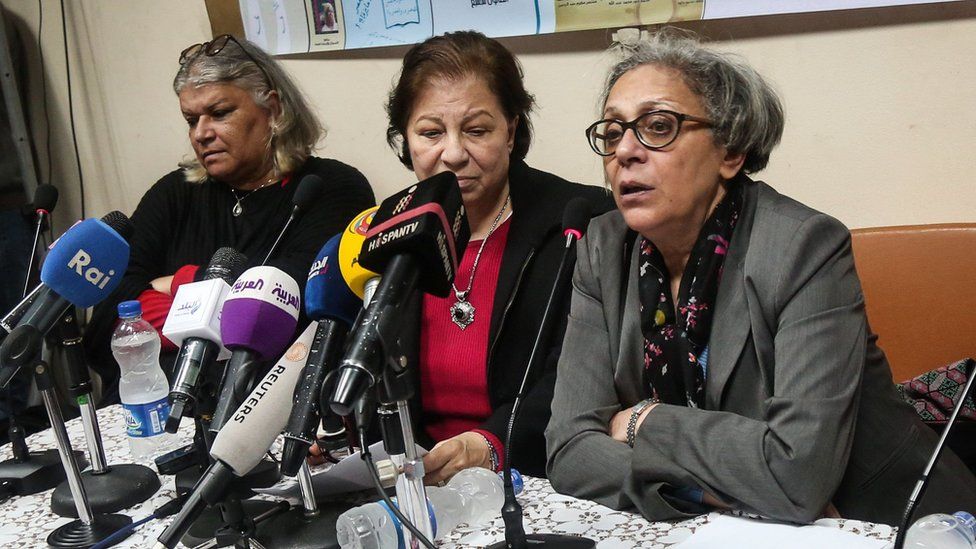Egypt centre for torture victims challenges order to close
- Published

An Egyptian centre that helps alleged torture victims and documents their cases has vowed to continue to work despite an order for it to shut down.
Officials had given the Nadeem Centre until Monday to cease activities, saying it had breached regulations.
The group has filed an urgent appeal against the decision.
Rights groups have criticised Egypt for its crackdown on dissent, amid a surge of reported torture of detainees. Officials deny the allegations.
El Nadeem Center for Rehabilitation of Victims of Violence has operated since 1993, providing support and counselling to victims of torture.
The organisation was due to be closed last Wednesday accused of violating unspecified health ministry regulations. But authorities agreed to delay the order to give it time to contest the decision.
Aida Seif al-Dawla, the group's director, said the move to close it was political.
Human rights groups have criticised the measure, saying it comes at a time when enforced disappearances are on the rise and amid growing concern about allegations of torture by the police and intelligence services.
Activists accuse security forces of torturing detainees and of detaining suspected activists or militant Islamists without reporting their arrests, allegations rejected by the government.
Egyptian President Abdul Fattah al-Sisi led the military's overthrow of Islamist President Mohammed Morsi in 2013, following mass protests.
Since then, as many as 40,000 people are estimated to have been detained. The US-based Human Rights Watch describes the crackdown as "ferocious".
More than 1,000 protesters, mostly Islamists, have been killed on the streets.
Egyptian officials deny that the Arab world's most populous nation has returned to the repression of the past.